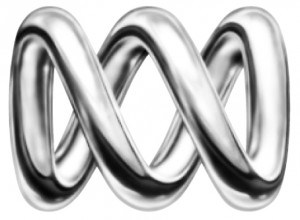 Cricket has a nasty habit of selling customers an unlimited mobile broadband service… that is limited to 5GB of usage per month. Today, the company announced it would be expanding its prepaid wireless broadband service to “big box” retail stores nationwide:
Cricket has a nasty habit of selling customers an unlimited mobile broadband service… that is limited to 5GB of usage per month. Today, the company announced it would be expanding its prepaid wireless broadband service to “big box” retail stores nationwide:
Cricket Broadband will soon be available in nearly 1,000 national retailer stores through a new all-inclusive $50 monthly service plan. The new plan will include all fees and taxes and provides unlimited Internet access without a signed contract or credit check. The Cricket A600 modem will be available as a grab-and-go offering for $69.99 with no activation fee. $50.00 top-up cards will also be available for this product.
The marketing on their website underlines the point: “With unlimited broadband access you can email, surf and download from your desktop or laptop anywhere in Cricket Broadband’s coverage areas.”
“Unlimited” in their marketing is actually “5GB” in the nitty-gritty details on their website as you sign-up:
Subscriber Management
We reserve the right to protect our network from harm, compromised capacity or degradation in performance. We reserve the right to limit throughput speeds or amount of data transferred, and to deny, modify or terminate service, without notice, to anyone whose usage adversely impacts our network, service levels or uses more than 5 GB in a given month. We may monitor your compliance with the above but will not monitor the content of your communications except as otherwise expressly permitted or required by law.
Cricket needs to discontinue the practice of referring to a service as “unlimited” when it isn’t unlimited at all. Cricket is also well aware of the 5GB limitation, because it is currently testing a 10GB plan priced at $60 a month.
Cricket has also applied for federal broadband stimulus funding to provide service to low income residents:
Low-income residents in San Diego County who can’t afford Internet service may get some financial help if a local wireless provider succeeds in getting more than $8 million in federal stimulus funds to expand broadband access.
San Diego-based Cricket Communications said yesterday that it has applied for federal Recovery Act funding geared to expanding high-speed Internet access not only in more remote rural areas but also to the urban poor.
Cricket is proposing a $10.7 million program to provide subsidized, low-cost Internet service to 23,000 low-income families in San Diego, Baltimore, Houston, Memphis, Tenn., and Washington, D.C.
Under the proposal, the federal government would cover 80 percent of the cost, with Cricket picking up the remainder. Cricket, a wholly owned subsidiary of Leap Wireless International, is working with One Economy, a Washington, D.C., nonprofit, to help it reach out to low-income households.
In addition, it plans to substantially discount its normal monthly service of $40 so that participants would pay $5 a month the first year and $15 a month the second year. The grant would cover two years of subsidized service.
As for Cricket’s new broadband plan, I’m unsure what’s new about it. It appears to be priced $10 higher than the old $40 Cricket plan (that comes with a $25 activation fee). The A600 modem is available for free after rebate from the Cricket website, and the service price there remains $40 a month, although “taxes and fees” are extra, which may account for the primary difference between the two plans. Cricket appears to be moving to “all-inclusive” pricing strategies, which means the price you see is your “out the door” price. Many consumers are shocked when signing up for a mobile phone service that is advertised at one price, and turns out to be considerably higher once taxes and fees are included on the bill.
The A600 offers average download speeds of 538 kilobits per second (Kbps) and peaks at 787 Kbps. The average upload speeds offered by this modem are of the order of 502 Kbps, according to a PC Magazine review.
[Update 9/22: A response from Zocolo Group on behalf of Cricket can be found in the comment section of this article.]


 Subscribe
Subscribe


